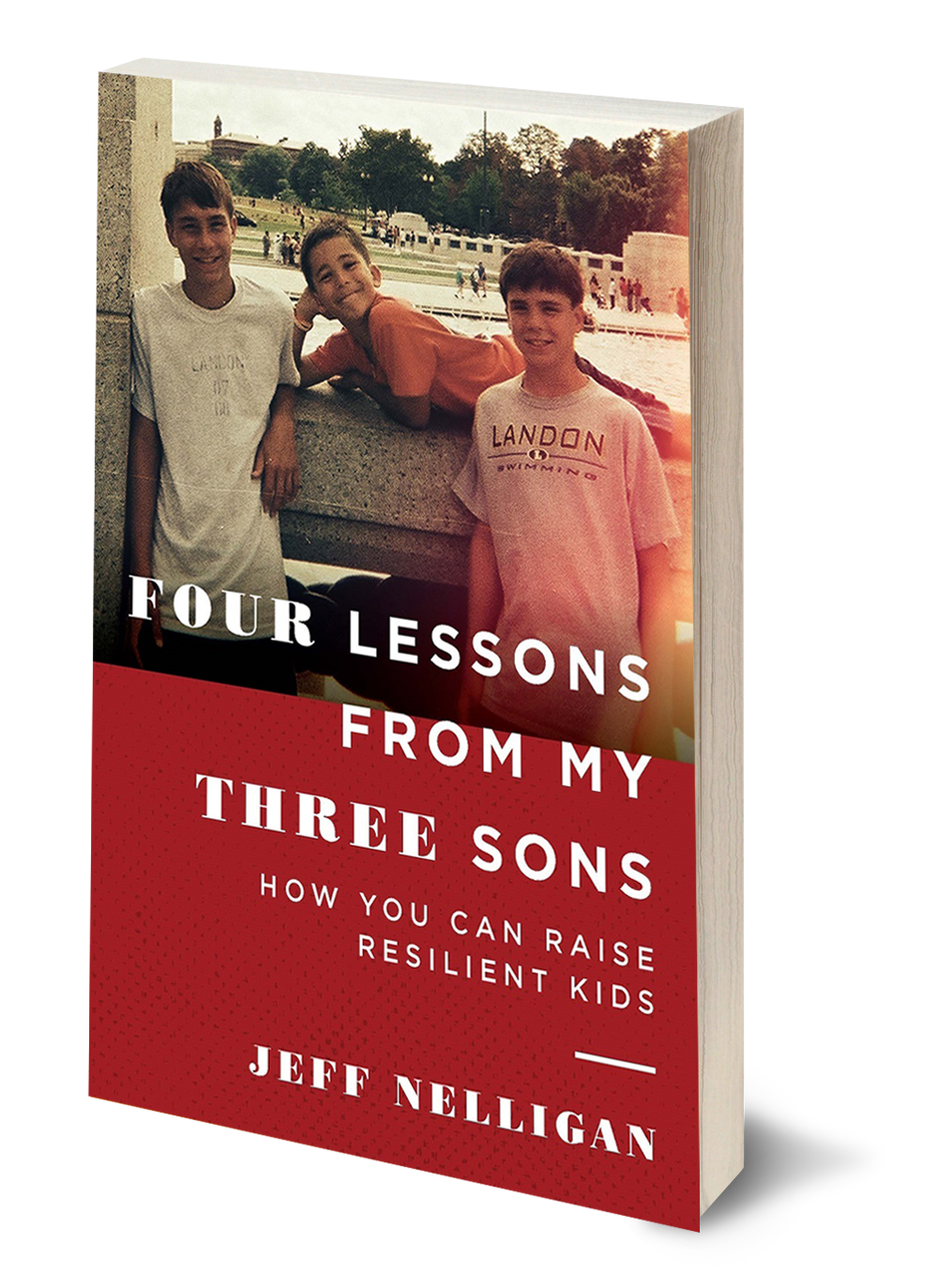75 percent
The key parent and kid marker
You’re probably familiar with the old axiom: Parenting is the most important job in
the world in which the only training is on the job.
But I wager you’re not familiar with a less whimsical and far more compelling
fact:
75 percent of the time we will spend with our boy or girl in our lifetime will be
over by the time that child reaches age 12. Here’s an additional shocker: That
figure moves to 90 percent by the time the kid turns 18.
Yes. And consider for a moment what that means. 12 short years – 144 months –
comprise the time you have in which to form your child’s values, attitudes and
behaviors that you dearly hope will carry them through their lives – long after
you’re gone. The personal qualities you model and teach your children will
ultimately determine the type of friends they have, their path through school and
civic life, their work ethic and most important – at least to me – their resilience in
adversity.
Why? Because we all know that while life has its truly wonderful moments – think
family - it’s the obstacles, setbacks, and yes, true unmitigated failures that have the
power, alas, to slow down the natural development of a child into a teen into a
young woman or man. I mean, slow wayyy down.
This is hardly breaking news – in fact it’s simple reality. I’ve seen it up close and
person in a quarter century of being around kids and parents in every realm of life
under the American sun.
Alas, such a slow role to maturity – cue the fantastical “emerging adult” choir - is a
troubling feature of the most recent generation. We know and we see GenZ (age
range 13 to 28) has….challenges. My first and always culprit for this is the now-
recognized addiction to digital media. The resulting damage – mentally, socially,
and physically – is comprehensively outlined in Dr. Jonathan Haidt’s best selling
book, Anxious Generation. Dr. Haidt is an intellect for the age and assembles
indestructible evidence of digital media’s impact on children and teens.
Heck, even vapid Nellie here knows that a kid who spends an average of 8 hours
and 47 minutes a day glued to a screen is a kid on the way to crazy land.
Dr. Haidt’s empirical masterpiece, unsurprisingly, is reflected in the following
numbers: 42% to 61% of GenZ have been diagnosed with mental health conditions
such as depression, anxiety, ADHD, and post-traumatic stress disorder. A third of
GenZ young people are overweight or obese; 41 percent report living with chronic
condition and 45 percent of 18-30 year-olds live at home with their parents.
Oh, and in that Real World past school days where kids begin their ascent into
adulthood? 58 percent of hiring managers say college grads are unprepared for the
workforce. 60 percent say they fire a new hire GenZ within a year and… wait for
it….one in four GenZ bring their parents to job interviews. “My son is a wonderful
boy – he takes the trash out and sometimes washes the supper dishes!” Get a grip,
Mom.
Of course, inter-generational snark is as old as Socrates whining about Plato’s
laziness. But let me emphasize: All of the figures above are not some recitation of
preachy anecdotes from an old crank. All of the above are facts.
And here we are. Something very wrong has happened to this cohort of kids, 69
million in total. The culture via the screen has had an inordinate impact on their
lives; that’s what Dr. Haidt’s 400 pages are all about. Is this because of the absence
of strong, engaged, disciplined parenting?
Hence, ask yourself the simple question: How do you want your child to handle
that Real World outside the front door, the schools, the peers, the athletic fields and
theatrical stages and the Robotics club, the neighborhood, the…. Will your child
have the character, drive, fortitude, kindness and personal discipline to succeed in life?
Now think about the 75 percent figure. And then this: The kid who probably won't end up in the statistics above is
the one whose parents develop her or his values and behaviors early in life.
Next up: Three ways in which you can do so.











